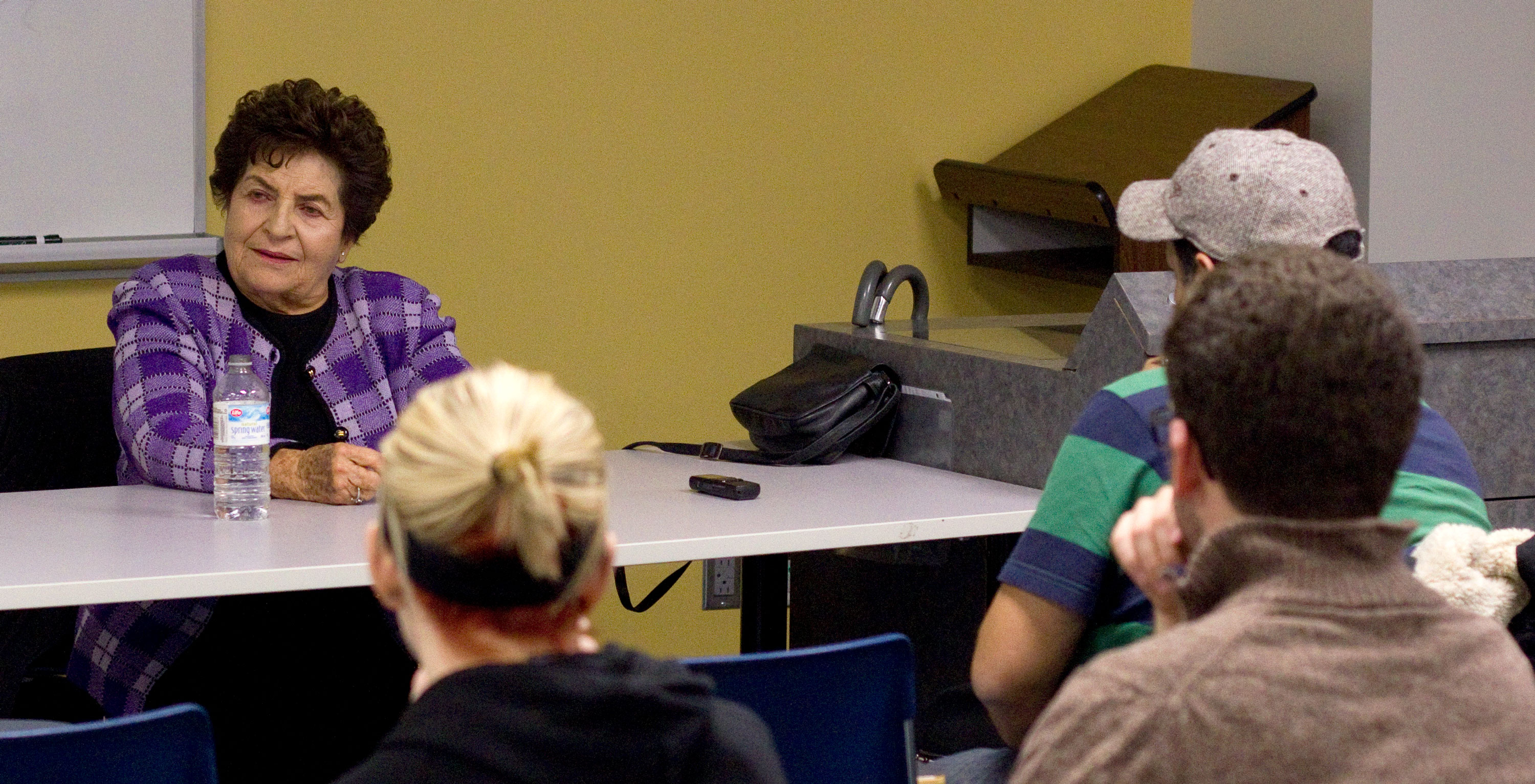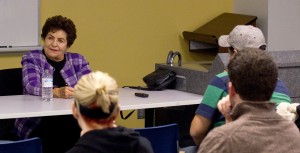Holocaust survivor speaks at Laurier


Last Thursday, as part of Holocaust Education week, Holocaust survivor Miriam Frankel came to Wilfrid Laurier University to share her experience.
Frankel began by explaining to the audience why she felt it was important to share her story despite how painful and difficult it was to speak of.
As a survivor she not only felt obligated to tell her story because of Holocaust denial, but also because she is one of the few survivors left.
“Hearing a story from a survivor, you’ll hear it in a different way,” she explained.
As conditions in Europe started to deteriorate during the Second World War, Frankel and her family were forced out of Italy back to Czechoslovakia, which was occupied by Hungary at the time.
“We underwent terrible taunting and bullying by other kids . . . our life was made just miserable,” Frankel said to the audience with regards to living in Czechoslovakia.
“Every morning I would beg not to go to school, this went on for about four years.”
Eventually her family was forced to a ghetto, and later deported to an unknown destination.
“I remember knowing the meaning of this and saying, ‘Papa, these men, they want to kill us, they’re going to kill us.’ I couldn’t get rid of that horrible foreboding feeling,” Frankel reminisced.
The final stop the train made was at Auschwitz, which was the last time Frankel ever saw her mother or sisters.
The horrors that Frankel described created a silenced and shaken audience.
Her descriptions of the brutality and sadness of her times at Auschwitz were alarming, but what was truly incredible was Frankel’s bravery and strength, which led to her survival.
“It was sheer hell that you cannot even begin to imagine; at night you could hear screaming of young women giving birth, you could hear the dying, it was horrendous,” Frankel described.
“It was like I was living in a nightmare.”
Despite extreme security in the camps, after hearing her father might be nearby, Frankel contacted him. Frankel’s father passed on inspiring advice, which gave Frankel strength.
“Remember that no matter what they do to you here, they cannot degrade you so long as you know who you are and where you come from,” her father had told her.
Remembering to have faith and do her prayers helped Frankel through the most challenging of times and eventually she was moved from Auschwitz to a munitions camp that produced land mines.
After the war, survivors such as Frankel were overwhelmed with emotions.
“At first it was amazing, but that was when the real fear comes in, real problems and the anxiety,” said Frankel. “Do I have to go back home? Do I have a family? That was the most horrible time for me.”
Frankel discussed the hardships following the war and how she lived in utter denial.
It took her two years to come to terms with the loss of her parents, siblings, grandparents and all together over fifty family members.
“I’m very grateful that Canada gave me a home and to so many other immigrants,” expressed Frankel.
“We appreciate it and [have] become very contributing and good citizens of Canada.”
Frankel concluded by saying she feels it is important to discuss the past and share these stories.
When asked about her overall message she replied, “you can’t imagine what war does to people, to families and to countries, and that is my message.”
By Ally Flack


